May is both Women’s Health Month and Maternal Health Month — a time to honor the strength, resilience, and well-being of mothers everywhere. For mothers navigating the path of substance abuse recovery, this month carries an even deeper meaning. It’s a reminder that your health, healing, and wholeness matter just as much as the love and care you pour into your children.
Balancing recovery and motherhood is no small task. It means tending to your own healing while still showing up for the scraped knees, bedtime stories, and everyday moments that shape your child’s world. If you’re walking this journey, know that you are not alone. Recovery doesn’t ask you to be perfect — it invites you to be present, compassionate with yourself, and open to building a new, healthier foundation for both you and your family.
Letting Go of Mom Guilt: Embracing Grace in Recovery
One of the heaviest weights mothers carry in recovery is guilt and shame. It’s easy to replay past mistakes or worry that you’ve fallen short as a parent. But part of substance abuse recovery for mothers is learning to gently release that guilt and understand that healing doesn’t erase the love you’ve always had for your children. Your decision to seek recovery is not a sign of failure — it’s one of the most powerful acts of love and courage you can offer your family.
It’s okay to acknowledge those hard feelings, but don’t let them define you. Your children don’t need a perfect mom — they need a present, growing, and honest one. Every step you take toward recovery is a step toward creating a safer, healthier home for them. Forgiving yourself and showing yourself the same compassion you offer your kids is part of the journey. Healing happens in small, steady ways, and you are worthy of both grace and a fresh start.
Talking to Your Children About Recovery: Honest Conversations with Heart
When you’re in recovery, one of the bravest things you can do is talk openly with your children about what’s happening. Kids are perceptive — even if they don’t understand every detail, they sense when something is changing. Having honest, age-appropriate conversations builds trust and reassures them that they are safe and loved. Part of substance abuse recovery for mothers is showing your children that it’s okay to talk about hard things — together.
You don’t have to have the perfect words. Simple, gentle honesty goes a long way. Here are a few conversation starters you can use to open the door:
- “Mommy has been getting help to feel better and healthier. I’m working hard every day so I can be the best mom I can be for you.”
- “Sometimes grown-ups go through hard things, just like kids do. I’m learning new ways to handle those hard things so we can have more happy times together.”
- “If you ever have questions or feelings about what’s happening, you can always talk to me. You won’t get in trouble for being honest with me.”
The goal isn’t to explain every detail — it’s to create an environment where your child feels safe, heard, and reassured. Keep the lines of communication open, check in often, and remind them how loved they are. Your willingness to talk openly models strength and resilience, and it helps build a deeper connection as you heal together.
Healing Together: Self-Care Strategies That Include Your Children
Self-care in recovery doesn’t have to mean stepping away from your children — in fact, some of the most meaningful self-care can happen side by side. Part of substance abuse recovery for mothers is learning how to nurture yourself with your children, showing them that caring for your mind and body is not just important, but something to be shared and celebrated.
Here are a few gentle ways to practice self-care together:
- Take mindful walks. Step outside and go for slow, quiet walks together. Encourage noticing small things — birds, flowers, clouds. It soothes both you and your child.
- Create a gratitude ritual. At bedtime or during dinner, share one thing each of you is grateful for. This simple practice can shift both of your mindsets toward hope and connection.
- Do calming crafts. Coloring, painting, or even baking together can be relaxing for you and fun for your kids. These quiet, creative moments offer calm without pressure.
- Practice deep breathing. Teach your child easy breathing exercises, like pretending to blow up a balloon or smelling a flower. You’ll both benefit from slowing down together.
- Enjoy story time. Reading together isn’t just for kids — it can be grounding and comforting for you, too. Let the routine calm your nervous system while strengthening your bond.
These shared moments remind both you and your child that healing doesn’t have to mean separation. You’re teaching them healthy coping skills while giving yourself the nurturing care you deserve.
Navigating Co-Parenting Challenges in Recovery: Prioritizing Peace and Stability
Co-parenting can be complicated under any circumstances — and when you’re in recovery, those challenges can feel even heavier. Whether you’re working alongside a supportive co-parent, navigating strained relationships, or managing shared custody, part of substance abuse recovery for mothers is learning how to protect your own healing while keeping your child’s stability at heart.
First, give yourself permission to set clear boundaries that support your recovery. Communicate as calmly and clearly as possible with your co-parent about what you need to stay healthy, whether that means setting routines, limiting stressful conversations, or asking for support in certain areas. When possible, keep the focus on your shared goal: the well-being of your child.
If communication feels tense or difficult, try using neutral phrases to keep things child-centered, such as:
- “Let’s work together to make sure [child’s name] feels safe and supported.”
- “I’m focusing on staying healthy so I can be the best mom I can be. Here’s what would help me continue on that path.”
- “How can we create routines that keep things consistent for [child’s name] right now?”
Remember — you can’t control the actions or attitudes of your co-parent, but you can control how you respond and what you prioritize. Lean on your recovery support system, whether it’s a counselor, sponsor, trusted friend, or recovery group, to process any difficult emotions that come up. You’re doing something incredibly hard, and every step you take toward healthy co-parenting creates more security and love for your child.
Tips for Single Mothers in Treatment: Finding Strength and Support on Your Journey
Being a single mother in treatment is undoubtedly challenging, but it’s also an incredible opportunity for growth and transformation. During substance abuse recovery for mothers, there are unique struggles when you’re managing both your own healing and the needs of your children — but with the right strategies and support, you can navigate this journey with grace and strength.
Here are some tips that may help as you work through recovery as a single mom:
- Build a solid support network. Don’t hesitate to lean on trusted friends, family, or fellow parents in recovery. Whether it’s asking for help with childcare or emotional support, you don’t have to do this alone. Consider joining a support group for single mothers in recovery to share experiences and advice with others in similar situations.
- Set realistic goals. Recovery is a marathon, not a sprint. Break down your goals into smaller, manageable steps. Celebrate the small victories — whether it’s attending an appointment, managing a tough day, or having a peaceful moment with your child.
- Utilize local resources. Many communities offer resources specifically for single mothers in recovery. Look for childcare assistance, financial support, or treatment programs that cater to parents’ needs. Connecting with local organizations can provide much-needed relief and stability.
- Practice self-compassion. Remember, you are doing something incredibly difficult, and it’s okay not to be perfect. Give yourself permission to take breaks, ask for help, and forgive yourself on tough days. Your children are learning from you every day about resilience, self-care, and love.
Every day in treatment is a step forward — not just for you, but for your children, too. By taking care of yourself, you’re giving them the most precious gift of all: a healthier, stronger mom who is present, engaged, and ready for the future.
Your Journey to Healing: Support for Mothers at Twin Branch Wellness & Recovery for Women
Motherhood and recovery are both journeys of courage, healing, and growth. As you navigate the delicate balance of healing while being the mom you’ve always wanted to be, remember that every step you take is a testament to your strength and love for your children. Substance abuse recovery for mothers is a path of transformation — and it’s okay to ask for help along the way.
If you’re a woman struggling with substance abuse, you don’t have to face this challenge alone. Twin Branch Wellness & Recovery for Women is here to provide the support, care, and resources you need to heal. Whether you’re navigating recovery as a single mother or trying to rebuild your life for the sake of your children, Twin Branch offers a compassionate, nurturing environment where women can find the strength to overcome addiction and create a brighter future for themselves and their families.
Take one step at a time, be kind to yourself, and remember: healing isn’t just possible, it’s happening every day.











